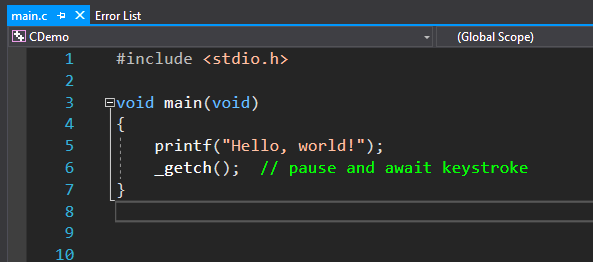2019
August
30
|
Not gone, not forgotten
Despite a 9-day hiatus from writing Daily Notebook entries, I'm still here.
The growth of my software business is taking up time.
But we had a rare phenomenon Wednesday night — clear weather —
and I did get to Deerlick. Pictures soon.
Permanent link to this entry
Astrodillo

This year's astronomy companion in the back yard is not a spider but an
armadillo (or, as a friend calls it, military-grade possum).
I think someone has been feeding him, because he approaches to within
about ten feet, sniffs the air, and then runs away — I'm apparently
not the right person.
When I took this picture, he was between two fences that run parallel.
He was busy digging a tunnel under my neighbor's wooden fence even though it was open
on the end two feet away and he could easily go around it (and did so a couple
of times during the construction project). He may not be the smartest animal
I've seen lately.
He's a natural enemy of copperhead snakes — he roots around in the same places
and is apt to eat them if they are small. He's welcome to stay.
Permanent link to this entry


|
2019
August
20
|
"Open command window here" in any folder
Microsoft has been taking away easy ways of opening a command prompt,
and in some cases replacing them with links to PowerShell, which I find
confusing. The simplicity of the traditional command prompt makes it much
easier for me to use reliably. And it's still there, even if hard to
get to.
Fortunately, Shawn Brink has made it easier. He's created registry scripts
that (1) put "Open command prompt here" where it used to be,
on the right-click menu that you get when
you click on a folder, and (2) also put it on the menu you get
when you right-click in a folder (at the bottom or off to the right,
on a blank area, not a file), like this:

This is a huge time saver for me; I use the command prompt constantly.
You can download his scripts from
his page about them on Tenforums or,
if that doesn't work, directly from me.
I've checked them; they are safe.
Simply double-click on each .reg file and give permission
for it to install.
One of them, of course, undoes the other two, so you won't
want to install all three.
One more hint for command-line users:
Get hold of UNXUTILS
(from me or from other places) so you'll have commands like "ls" and "grep".
Permanent link to this entry


|
2019
August
17
|
Busy times at Covington Innovations
I know you haven't seen me for 8 days; have no fear; nothing's wrong.
Business is booming and I have greatly increased my work commitment,
doing artificial intelligence research and development for industry.
Covington Innovations is no longer seeking new projects but will
honor existing commitments.
Permanent link to this entry
The youth-programification of Christianity
[Note major addition at end.]
This blog entry is for my fellow Christians. Others may find it of interest
as outside observers.
My fellow Christians were sad to learn, in the past couple of weeks, that two
high-profile young leaders are abandoning the faith.
Joshua Harris, megachurch pastor and
purported authority on dating and marriage preparation,
is leaving not only the church but also his wife.
And Marty Sampson, a singer-composer at Hillsong, the massively popular band that supplies
much of the newest church music, has left the faith while saying
surprisingly shallow things about why.
[Note: Reportedly, in a further statement he has partly recanted;
he is having serious doubts but hasn't left.]
Crucially, it's not as though he said, "I've listened to the best responses to my
doubts and still don't believe them." Rather, he asserted that nobody ever talks about
issues that are actually well known and historically important. Has he never heard
of C. S. Lewis?
I think these are symptoms of a deeper problem, which is too much emphasis on youth
and not on maturity. Harris was a celebrity writer at age 23 and was in charge of a
megachurch at 30. Hillsong is a band (and church) that appeals specifically to young people
and youth culture.
Deeper yet, I think evangelical Christendom is far too influenced by the youth programs of
the 1970s and the long shadow they have cast.
Youth work in the 1970s was vitally important. (I was there, as one of the youth.)
It was essential to tell young people that Christians should reject, not join, the rising
tide of materialism and middle-class conformity. And there was a new wave of musical
creativity that we needed to tap into. Secular popular music was in many cases unprecedentedly
ungodly, and it was important to show that God can be worshipped with new voices.
I am happy that these messages were delivered.
I am especially proud that, in middle school, Melody was part of a traveling show (from First Baptist
Church, Tucker, Georgia) called Show Me Jesus that spread the word.
Show Me Jesus, a.k.a. Show Me, was composed by Jimmy and Carol Owens.
You can hear a recording of it (not Melody's performance)
at this link.
But something went wrong. Too many people never outgrew the youth program.
Instead, the youth program became the whole church. Many whole church services today
look like youth activities from 1975.
That is what led to the "worship wars," still going on, where advocates of "all-contemporary worship"
insist that churches ditch their hymnals and use only the newest music.
I am glad to accept new songs on their merits; I like quite a few of them. But something is
wrong when people who know 20 songs, all recent, are dictating musical taste to people who
know 500 songs from all of history.
And the demands are always one-sided: "You need to adapt to my taste." (How about you
adapting to mine too?)
Closely related to the worship wars is the notion that you have to entertain the young
people to bring them in. There's a slippery slope from appealing to young people, to
appealing only to young people (who are inexperienced Christians or nonbelievers), to
letting inexperienced or nonbelieving people dictate how God is worshipped.
That leads to a tendency to
elevate young people to leadership positions before they're ready, just because they're
young and popular and will bring in more young people. That, I think, is what happened to Harris.
As for Sampson and Hillsong, the issue we need to consider is how much evangelical Christendom
is being run by young entertainers rather than wise pastors. Evangelical popular culture is
a two-edged thing — it edifies people but can also make, or keep, them shallow.
The critical need in 1970 was to disengage from materialism.
Today it is to raise the intellectual level so that Christians know what their
faith, and their wise predecessors, say about difficult things.
And if maturity and wisdom are not the goal, this won't happen.
There is another reason many churches operate on too low an intellectual level.
It is misplaced respect for Grandma, who had only a sixth-grade education and was a
better Christian than any of us. So they teach on Grandma's level,
even though Grandma has been in Heaven for 50 years, and everybody in the room
today is college-educated or college-bound.
Don't misunderstand. You can teach the Gospel very effectively on a sixth-grade level.
What you can't do is engage with the other things a well-educated person knows about
and cares about. You end up giving the young people the impression that Christianity simply has
nothing to say about anything they've learned after elementary school.
And that's how you lose the young people.
You can get them to come to church for entertainment for a while.
You may even miseducate them into doing that the rest of their lives.
But what you need to be giving them is a path to maturity and wisdom,
not perpetual adolescence.
"Youth are the future of the church," it is often said.
I reply: "Yes, but only the ones that will grow up."
[Added June 2020:]
Another Christian entertainer has left the faith — Jon Steingard,
of the band "Hawk Nelson" — and philosopher
William Laine Craig
responded with the observation that
"It is striking that so many of these folks do seem to be involved in worship activities that are highly emotional in nature, and therefore do not have the substance to persevere in the face of trials or questions they can't answer."
Crucially, Steingard said that his (emotional) spiritual life had dwindled away.
And that, I think, points up something that can easily go wrong in evangelical churches:
people equate their faith with adolescent emotions
accompanying a conversion experience during adolescence.
When their emotions mature, they think the whole thing has gone away.
What I call "youth-programification" is an attempt to preserve adolescent feelings
into adulthood, avoiding maturity rather than seeking it.
The big theological point here is that what matters is commitment to Christ,
not a specific conversion experience
(particularly, not a specific day in youth camp).
I think we evangelicals need to
recognize that God reels in different people by different processes.
Permanent link to this entry


|
2019
August
9
|
Welcome, Dorothy!

Allow me to introduce Dorothea Rose Barrett, my newest
grandchild, born around 4 p.m. EDT this afternoon.
Mother and child are healthy and happy.
Her father's name is Nathaniel, which is Hebrew for "God gave." Dorothea is
Greek for "gift of God."
Permanent link to this entry


|
2019
August
8
|
Putting C on the menu

It turns out to be very easy to add plain C programming to the project menu in
Visual Studio. I used the "export template" feature and did not try to completely
disentangle it from C++ — Visual Studio still thinks it's a C++ project but
all of the settings that I described the other day are made,
and the compiler compiles in C, not C++.
Here's how to install my template, or rather pair of templates.
(1) Download C Console Application.zip and,
without unzipping it, put it in:
Documents\Visual Studio 2017\Templates\ProjectTemplates
(2) Download C file.zip and,
without unzipping it, put it in:
Documents\Visual Studio 2017\Templates\ItemTemplates
Now you can find "C Console Application" under New Project. Note that, as shown
above, it appears directly under "Visual C++" and not in any of the subgroups.
You can also "Add New Item" and have "C file (.c)" as one of the choices.
Since my goal was just to get the job done, I haven't made this as elegant as it
might be. I invite others to do it more elegantly!
Permanent link to this entry


|
2019
August
6
|
A significant day for Sharon
We are thankful that today Sharon underwent successful arthroscopic surgery on her
shoulder, and some repairs were made that may relieve the pain she has been
experiencing. A bone spur was causing severe bursitis, and there was also a tear
in the rotator cuff.
Perhaps more importantly, she has no medically unexplained symptoms. The cause of
the pain was found. Future treatment can proceed on the basis of knowledge.
Permanent link to this entry
Using C in Microsoft Visual Studio

Now that I'm developing for microcontrollers in C, I wanted a good C development
environment for
Windows, so that I can test algorithms. (Building Windows applications is not really
the goal.)
Since every C++ compiler has C underneath it, and Visual Studio is an excellent C++
environment, I figured there must be a way to use it for C as well.
And there is. From several web pages I ascertained that the procedure is
the following:
NOTE: For templates that do all of the following for you automatically,
see August 8, above.
-
New Project, C++ Project, Other, Empty Project.
-
Project, Add New Item, C++ File, and name it main.c. The name ending in .c
tells the compiler to use C rather than C++.
-
Project, Properties, Configuration Properties, C/C++, Advanced, Compile As, C. (Optional because
the .c ending already takes care of this, but if someone builds an automated version of
this procedure, this should be included.)
At this point you can write and run programs. Normally, however, a console program will
run and then close the console when it ends; you may not see any output.
You can fix this by including a _getch() at the end of your program,
or fix it more elegantly with two more settings:
-
Debug, Options, Debugging, General, (scroll all the way down), uncheck
"Automatically close console when debugging stops."
This is an option for Visual Studio as a whole.
-
Project, Properties, Configuration Properties, Linker, System, SubSystem, and what
appears to be a blank field is actually a drop-down list; click at the right of it
and choose Console.
The second of those is how you clue in Visual Studio that this is a console app.
It actually didn't know! Without this, unchecking "Automatically close console" has no
effect because Visual Studio isn't in control of the console.
I am wondering if someone has written a NuGet package, or something, to put "C Console App"
onto the main menu and do all these settings automatically.
A correspondent asks why I don't simply launch a C++ project and write in pure C, which is a
subset of C++. Two reasons. I want the compiler to enforce C syntax (not C++), and I don't
want extra files generated (every C++ project gets at least one). I want to write very simple,
portable C programs that will be ported to other systems.
Permanent link to this entry


|
2019
August
5
|
R.I.P. Ack Radio
Atlanta loses its last 20th-century electronic parts jobber
For a couple of years I'd been meaning to make another visit to Ack Radio, an electronic
parts supplier in Atlanta that has changed little since mid-century.
But I've just learned that it went out of business a year ago.

From the last version of Ack's web page
Fortunately, Ack preserved, and I archive here, a
booklet of pictures showing what the store looked like
and preserving a piece of history.
If you've ever been in a place like this, take a moment and browse through them.
All is not lost, because my understanding is that Wizard Electronics, an audio equipment
company, has moved into the building and is selling the remaining inventory. I may pay
them a visit.
I've only been to Ack a few times, but in my youth, every town had a parts jobber like this,
supplying the local TV repair shops.
The one in Valdosta was Specialty Distributing Company, and it looked very much like Ack,
with a small showroom, a counter, and long rows of dark green shelves behind the counter
(where, as a 10-year-old, I was allowed to roam around).
The whole thing worked like a professionally oriented auto parts store: you'd walk up to
the counter and tell them what you needed, although of course tools and new items were on
display in the showroom and on the racks right behind the counter.
TV repair drove the growth of parts jobbers.
In the radio era (1930s), a repair shop could stock its own parts.
TV came along, a much greater variety of parts was needed, and it became normal for
every repair shop to send someone to the parts jobber once or twice a day, much like
auto repair.
Companies like Ack and Specialty grew. They had already been supporting industrial
electronics (of which there is more in any town than you'd imagine), pro audio, and other
businesses that needed electronic parts. Although technically wholesale, they would
sell to anyone, just like NAPA.
TV repair faded away in the 1970s and 1980s as TVs became much more reliable, and the
component failures, when they occurred, were much harder to diagnose; we moved into the
circuit-board-swapping era. Radio Shack served hobbyists and gadgeteers who needed only the most
common electronic parts, or who wanted to experiment with new things, such as digital ICs,
that the repair trade never needed.
Mail order became much more efficient, aided by the Internet, especially after 2000.
One by one, the parts jobbers closed. I think Specialty (in Valdosta
and Athens) made it to about 1990; I visited a traditional parts jobber in Tucson about 1997
(and it looked just like the ones back east); and until last year, Atlanta had Ack.
Permanent link to this entry
Serendipity hunt or snipe hunt?
Melody and I used to take the children and go exploring in suburban Atlanta, we called
the trips serendipity hunts. We usually ended up near Gwinnett Place Mall.
My attempt at a serendipity hunt, by myself, on Saturday afternoon was singularly ineffective.
Initially I headed for Mall of Georgia (the mall that is still prosperous) but
actually couldn't get there because of traffic jams.
It was the back-to-school shopping frenzy, and everyone had to go there.
So I bailed out and, needing a place to walk for exercise, headed for Gwinnett Place Mall,
which is still a mere ghost of its former self. It's down to about 20% occupancy, but the
remaining stores, especially jewelers, seem to be doing all right; there's a big, bright Macy's
(with no customers in it) but no other anchor stores.
We had many good trips to Gwinnett Place Mall, but in its present state, it no longer jogs
the memory as to what used to be where. Too many storefronts have been repurposed many times,
and large sections of the mall are blocked off entirely. The fountain is of course dry.
Compared to my last visit, I was surprised that there were so many people walking around.
Apparently, if nothing else, it's an indoor park. And some may have been intrigued by
recent filming of "Stranger Things" there (though I didn't see any props left over from that).
What bothers me is that if Mall of Georgia is positively overcrowded, why is Gwinnett Place Mall dead?
Sadly, I see a racial divide: Mall of Georgia is the Anglo place to shop, while most of the
shoppers at Gwinnett Place were Asian, black, or Hispanic. That is not good. Institutional
racism, when it sets in, is hard to get rid of.
Anyhow, I then proceeded to Fry's and found it looking as if it's only a few months away from
going out of business. There is empty floor space. The supply of new merchandise seems to
have ceased, except for the hottest-selling consumer items. The electronic parts and test
equipment were hardest hit — nothing there but what has been on the shelves for years.
We will miss Fry's, but we were already missing it; it lost its mojo during the recession.
Fortunately, El Torero, the Mexican restaurant, is doing fine, and so is Micro Center. But even
there I came out disappointed through a mistake on my own part.
I bought a 2-terabyte SSD and failed to notice it was M.2 form factor and was going into
a computer that doesn't have an M.2 slot. So now I am negotiating to see if I can send it back to them
or if I need to return it in person. But the store itself is thriving.
Update: Micro Center really came through, with an arrangement for me to send the
drive back without having to make the 1-hour drive. Kudos to them!
Serendipity hunt or snipe hunt? Mostly the latter, I fear!
Except for Micro Center. From now on I will make targeted trips there and not try
to explore the area.
Permanent link to this entry


|
2019
August
4
|
El Paso and Dayton
Look for the rest of the iceberg
We have had two mass shootings inside of 24 hours. The pace is accelerating, like
a slowly unfolding riot, where each act of violence makes the next one easier and
more probable.
In 2007, I described the Virginia Tech shooting as an unpredictable rare event
(what strategists call a "black swan") and said the response should be judged as how
well people handled something completely unforeseen.
Not any more. The pace is picking up.
The danger is increasing.
See for example this
Reuters chart,
though it doesn't tell me everything I want to know.
What do Americans want done about this? Sadly, nothing. That is the only way I can
sum it up for my foreign friends. So many Americans are so dead-set against any change
that the world thinks we're crazy. The phrase "thoughts and prayers" is being used so vacuously
as to bring real thoughts and real prayers into disrepute.
For those who care, I do have one big recommendation: Look for the rest of the iceberg.
For every mass shooter, there must be plenty more who fantasize about being a mass shooter,
partly equip themselves to do so, but don't go through with it.
Find out where they hang out, who is encouraging them, and what intervention is possible.
My second recommendation is to develop a response based on facts. Anybody can guess what
ought to be done, and all of them are doing it. But what do we find when we study the actual cases?
Mass shootings are not all alike, but there do seem to be some recurrent patterns.
Some kinds of guns lend themselves to mass destruction. One segment of the population — well-to-do
white males — seems to do all the shooting.
I don't have the data to go further. I hope someone does. Particularly now that a number of shooters are
surviving and going to trial, a lot more information is going to become available about how they came to
be mass shooters. Put that information to use.
I do have one further cultural recommendation: Separate responsible gun ownership from the culture of
violent fantasy. Responsible gun owners don't express contempt for their fellow citizens.
They don't use pictures of real people as targets. And they don't taunt their fellow citizens
with ΜΟΛΩΝ ΛΑΒΕ stickers and hostile gestures. People who act like that are poison.
[ADDED:] The National Institute of Justice is in fact studying mass shootings and is proposing some
responses that are based on facts, not speculation.
Summary at this
link (perhaps not permanent).
I am particularly interested in the radicalization step, where people go from
being distressed to being a danger to others.
We know shadowy online organizations are involved. Are hostile foreign powers?
Remember that the point of terrorism is to create panic and fear out of
proportion to the damage done; kill dozens, scare millions.
Fact-based policymaking has become a casualty of modern divisive politics.
People don't want facts. They want speculations that fit their ideology.
Permanent link to this entry


|
2019
August
3
|
Gelernter dares to doubt Darwin
Yale computer scientist (and Unabomber victim) David Gelernter has become one of many
who opine that there is a serious problem with Darwin's theory of evolution.
The problem is that, even given billions of years to operate, a random evolutionary process
could not actually build the amount of genetic material that needed to be built.
After all, billions of years are not infinite time when you're building something with
billions of parts.
He expressed his opinion in
an article in the
Claremont Review of Books (because it is a response to several books making
a similar claim). If that link goes bad,
click here for an archived copy.
This puts Gelernter within the "intelligent design movement," a school of thought that says
that the development of life
was guided, if not by the hand of God, then at least by something presently unknown to science.
And it's a game-changer for that movement for several reasons:
- Gelernter is not tied to any kind of Christian creationism. He is Jewish.
- He is a world-class mathematical scientist.
- He sees the problem with Darwinism as scientific, not theological.
- He expressed concern that many biologists are dogmatic about Darwinism — that the
issue isn't being debated — scientists are too afraid to say "we don't know"
or "there is a problem."
My own opinion? Unlike almost everybody who ever talks about this, I don't consider myself
an expert, but I will listen attentively. As a Christian, I believe in a creator but have
considerable flexibility in considering ways He might have done it. I'm not required to follow
any particular human school of thought.
I will, however, offer two clarifying comments.
(1) Don't draw an artificial line at "species."
Among Christian creationists, it is widely said that God created "kinds" of animals which
then could diversify internally.
But unless you are sure that these "kinds" coincide
with the biologists' definition of "species" you don't
have any stake in whether evolution can "create a new species." The point is not whether new
species can emerge, but whether evolution could do all that it is supposed to have done
in the time available.
(2) Remember what happened to astronomy.
In 1880, most astronomers would have said that as far as science can tell, Genesis 1:1 is false because
the universe is infinitely old — has always been there — had no origin.
Nowadays we have convincing evidence of the Big Bang, which was either the Creation or at least
the beginning of the laws of nature as we know them, and the problem with Genesis 1:1 has gone away.
The important point is, this was achieved by continuing research, not by trying to suppress
theologically unacceptable science. The relevant astrophysical research had to run its course.
The infinitely-old-universe theory had to be taken very seriously and pursued.
I think the same applies to evolutionary biology.
Permanent link to this entry


|









